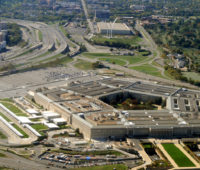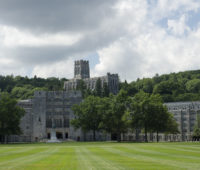In the summer of 1953, a major military-academic project came under attack on Capitol Hill. The target was Harvard University’s Refugee Interview Project, sponsored by the Air Force to the tune of almost $1 million – equivalent to $8 million in 2008. It sought to understand Soviet society by applying the latest techniques of “behavioral […]
The Department of Defense recently announced the creation of the Minerva Research Initiative, also known as Project Minerva, providing as much as $75 million over five years to support social science research on areas of strategic importance to U.S. national security policy. The initiative indicates a renewal of interest in social science findings after a prolonged period of neglect, but it also prompts concerns about the appropriate relationship between university-based research programs and the state, especially when research might become a tool of not only governance but also military violence. The Social Science Research Council (SSRC) has invited prominent scholars to speak to the questions raised by Project Minerva and to address the controversy it has sparked in academic quarters.
Building Bridges and Communities
by Dr. Tom MahnkenThe US government has always turned to the nation’s scholars and intellectuals for help in times of national crisis or emergency. Many of our most prized scholarly organizations today were born during previous conflicts. President Lincoln established the National Academy of Sciences amidst the Civil War. Likewise, President Wilson created the National Research Council during […]
The Minerva Controversy; a Cautionary Tale
by Ron RobinThe Minerva initiative has elicited several warnings of creeping contamination. Hugh Gusterson describes Minerva as a lethal vector not unlike the cancer-spreading tobacco industry’s contagion of health research. Katherine Lutz defines defense related funding as a malignant disease; “whole subfields have atrophied and others metastasized.” Priya Satia agrees that the separation of the delicate academic […]
Minerva: Unclipping the Owl’s Wings
by Ronald R. KrebsSecretary of Defense Robert Gates’ announcement last April of a new initiative, named Minerva, after the Roman goddess of war and wisdom and intended to cultivate a new relationship between the Defense Department and the academic social science disciplines, has been met with a hail of criticism. There is indeed much to criticize—from DoD’s truncated […]
Minerva and Critical Public Engagement
by Robert AlbroThere are a myriad of reasons for the social sciences to be skeptical of developing closer working relationships with the military by cashing in on new opportunities like the Minerva Initiative, most obviously the possibility of a further militarization of academia. Anthropologists, in particular, have been vocal about their concerns — concerns that should be […]
Scholars and Security
by Paul BrackenThe results of U.S. national security policy since 9/11 speak for themselves. There’s little point for me to throw more gasoline on this fire. My bet is that had the results of the last eight years been better than they were, there would be no Project Minerva, the Department of Defense’s program to support social […]
The Perils of Pentagon Funding for Anthropology and the Other Social Sciences
by Catherine LutzThis spring, the US Department of Defense announced an initiative to put up to $18 million annually toward social science research on issues of “national security.” It identified anthropology as a key discipline to be recruited to this work. Dubbed the Minerva Research Initiative, after the Roman’s virgin goddess of both warriors and wisdom, the […]
The Military-Social Science Interface
by Ian RoxboroughIf social scientists are to have a more effective engagement with the military we need to understand them better. It is not enough simply to produce research, package it, and hand it over to be used by the military. We should think about how it will be appropriated by them. Let me first argue the […]
Minerva Research Initiative: Searching for the Truth or Denying the Iraqis the Rights to Know the Truth?
by Saad EskanderWhat has prompted me to write this paper is the continuing refusal of the U.S. to pay serious attention to Iraqi calls for the repatriation of the Iraqi records illegally seized by its military and intelligence agencies. Most recently, the Pentagon has issued an announcement, calling upon U.S. universities, research centers and scholars to submit […]
Possibilities for Partnerships?
by Victor P. CoronaFour years ago, Berkeley sociologist Michael Burawoy called for a “public sociology” that increased interaction between publics and sociologists. The idea encountered both vigorous opposition and support from researchers eager for activist roles. Commenting on the issue, SSRC President Craig Calhoun questioned some of Burawoy’s assumptions but agreed that the discipline should “engage and be informed […]













